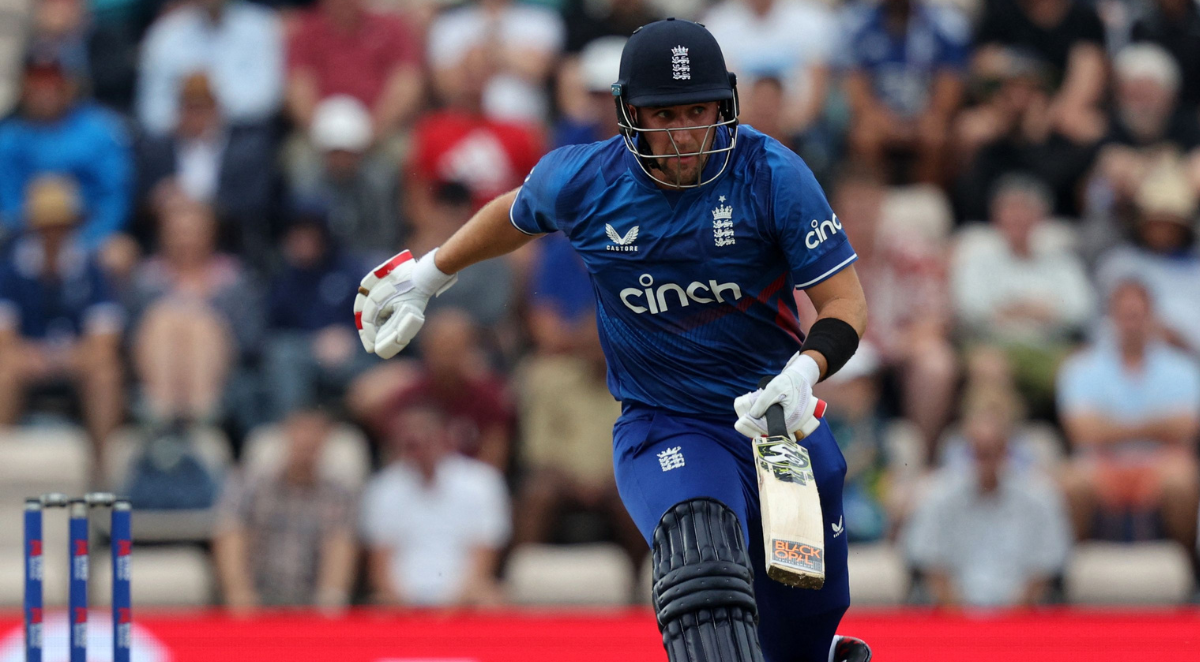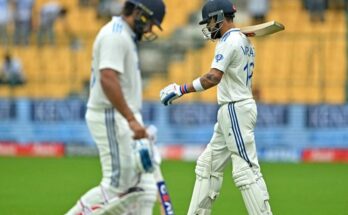When Jos Buttler announced his side at the Ageas Bowl today (September 10), there was a surprise in the top five.
Liam Livingstone finished fifth as Dawid Malan was absent due to the birth of his second child and Jason Roy was still suffering from back spasms. Livingstone has only hit five runs in an ODI once before. He scored four goals against the Netherlands last June.
The decision (or necessity) to pull him up raised some eyebrows. In his short ODI career, Livingstone was used as a late-innings basher, never appearing in a game beyond the last possible 15 overs, and hitting a few fine sixes before being caught for a boundary. Ta. He is a good finisher, but in his ODI middle-orderers he didn’t really show the adaptability he needs as a batsman.
Till today, the highest number of balls Livingstone has faced in an ODI so far was 40 against Cardiff two days ago. Despite this, he has scored at least one six runs in every inning except his one in which he reached double digits. His role is clear. He’s all about scoring and not hanging around.
Then, with catch-up looming and England trailing 8-3 and Jonny Bairstow, Joe Root and Ben Stokes returning to the stable, the order was reversed and Buttler stepped out to clean up the mess. I can understand that. That’s his job.
A further indication of how England view Livingston is the fact that when Harry Brook was absent and England were losing 28-4, Moeen was also sent off before him. It also makes sense to have England’s youngest Test number. As you like. 3 to stabilize the ship on a person who up until now has been more of a finisher than a stabilizer.
But when Livingstone came on after the first ball of the 13th over, after Buttler had sent Mitchell Santner inside until he tripped, the picture of his ability was completely reversed. After blocking the first four balls, he picked up a single in the last over and held his bat. From the next point, he scored his first boundary goal, leaving Tim Southee five points behind.
Together with Moen, Livingstone worked to restore peace to his innings while ensuring a high run rate that would continue. When he reached the latest of his three fifties in the ODIs, there was a trademark strong-hitting ball that fell to the ground from the side of his foot, but he did not hit his first six balls. It took 73 pitches. At this point England were 203-6 with two overs remaining in the shortened innings and a truly competitive score was within reach.
Livingston remained unbeaten on 95 of 78 pitches. He led England to a 55-5 win, 226-7, and found himself in a difficult situation where he was dealt the final blow to the World Cup defense. This was the most important innings of his international career, and an innings that would influence how England could deal with the imbalance in Game 11 of the World Cup.
Only Jos Buttler (121) and Moeen Ali (102) have made a higher individual score from No.7 for England in ODIs than Liam Livingstone’s unbeaten 95* today 🔥
Great shot to save the innings at 55:5 🙌#ENGvNZ < a href=" https://t.co/ZWaDANT4MW"> pic.twitter.com/ZWaDANT4MW
– Wisden (@WisdenCricket) 10. September 2023
With Stokes no longer fielding a top-six frontline bowler, England are struggling to find a suitable order with both bat and ball. The route they took to ameliorate this problem was to put one of Moeen or Livingstone in his six bats, and in the following order Sam He was one of Curran, Chris Woakes, David Willey. The idea was to use one or two of him.
However, the role in ODI cricket does not suit the special skills of either Livingstone or Moeen. The No. 6 has to be able to play whatever role the situation demands, whether it’s 28-4 as Moeen did today or 300-4 with 10 overs left and around 400 overs to go. Both the stabilizer and finisher must be able to do this.
In the past, an exceptional talent like Butler was the perfect person to fill this role, as it is the most difficult role to play well on a team. But England’s record no longer allows that. So it fell to either Moeen or Livingstone.
Moeen’s ODI career was spent at No. 7 for more than half of his career, and he played more innings as an opener than at No. 6. His average in 11 innings at number six was 29.8 half-centuries. He has not scored his century in any position in this format since his 2017. Today he played a key role in stabilizing England’s innings, but he was not the one who provided the impetus.
The fact that Livingstone has achieved this does not necessarily mean he should take up the role in England, especially with the first team looking so vulnerable. But it means he’s more capable than he’s shown so far and he can be trusted to read situations better than he currently is.
Subscribe to the Wisden Cricket YouTube channel for post-match analysis, player interviews, and much more.



